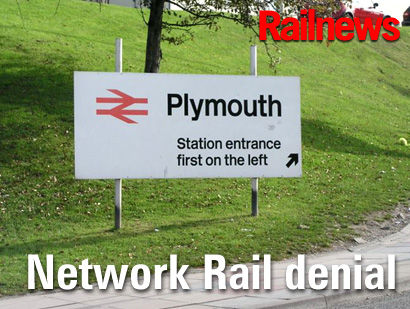NETWORK RAIL has denied reports that it has chosen another rail route through Devon, avoiding the vulnerable coastal stretch through Dawlish.
Damage to the Great Western Main Line caused by storms in south Devon will take some time to repair. Network Rail now says the link is unlikely to be restored beforre April, and the number of flights between London and Cornwall will be doubled from tomorrow.
But the company has denied a BBC report which claimed that the former Southern main line through Dartmoor via Okehampton and Tavistock had been selected for reopening, providing an inland alternative between Exeter and Plymouth.
A Network Rail source commented to Railnews: "I think there have been a few assumptions here, and they are not true."
In a statement about the former Southern line, Network Rail said: "It was closed in the 1960s and the land was sold off and built on. It would require substantial engineering, including new bridges and viaducts, before a new line could be constructed.
"While it is right to look at the alternatives, our priority now is to resume rail services to Devon and Cornwall as soon as possible. We will take forward a professional study on this once the current situation is resolved, engaging business, local authorities, communities and the rail industry in the advantages and disadvantages of alternative routes.
"In addition, we plan to develop a strategy and scheme that will provide increased levels of resilience to marine erosion as part of the Western Route Climate Change Adaption Plan by 2019. Implementation is currently planned for 2019 to 2024."
Parts of the former Southern line are still in use, from Plymouth to Bere Alston and from Exeter to a point just past Okehampton. In addition, there are plans to restore a further section from Bere Alston as far as Tavistock.
Other possible routes avoiding Dawlish are the restoration and upgrade of a former single track line which closed to passengers in 1958, or a completely new railway. The Great Western Railway bought land for such a line in the 1930s, but the scheme was interrupted by the outbreak of war and the land was resold by British Railways after nationalisation in 1948.


